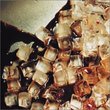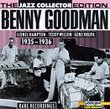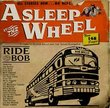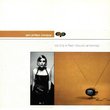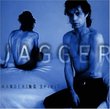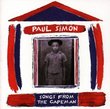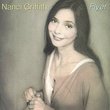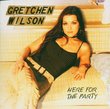| All Artists: David Bowie Title: Outside (Exp) Members Wishing: 2 Total Copies: 0 Label: Sony Release Date: 3/23/2004 Album Type: Extra tracks, Original recording remastered Genres: Alternative Rock, Pop, Rock, Classic Rock, Metal Styles: Goth & Industrial, Dance Pop, Progressive, Progressive Rock, Album-Oriented Rock (AOR) Number of Discs: 1 SwapaCD Credits: 1 UPC: 827969210024 |
Search - David Bowie :: Outside (Exp)
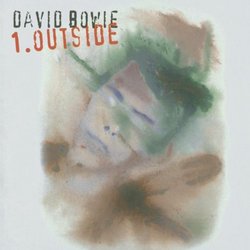 | David Bowie Outside (Exp) Genres: Alternative Rock, Pop, Rock, Classic Rock, Metal
CD > POPULAR MUSIC > ROCK |
Larger Image |
CD DetailsSynopsis
Product Description CD > POPULAR MUSIC > ROCK Similar CDs
Similarly Requested CDs
|
CD ReviewsA great album worth buying ONCE Michael W. Draine | Acton, MA United States | 01/30/2005 (4 out of 5 stars) "Not only do I consider OUTSIDE Bowie's best album since 1981's SCARY MONSTERS, OUTSIDE is my current favorite Bowie album. I recommended it without hesitation to industrial rock fans, Enophiles, and anyone who appreciates dark, adventurous sounds. However, if you already own the original pressing, there's no need to buy this album a second time. The remastering offers no improvement over the original edition's superb sonics. As other reviewers have noted, the reproduction of the digital booklet art and Bowie's cover painting are markedly inferior to the original digipak. The bonus track is a throwaway. I would have preferred to see OUTSIDE reissued in a deluxe edition with a disc of live material from the OUTSIDE tour, which included blistering versions of "Look Back in Anger" and "Diamond Dogs," as well as electronic arrangements of vintage songs such as "Andy Warhol" and "The Man Who Sold the World."" It's back! Bowie's 95 renaissance Da Man | Pekin, IL | 04/20/2004 (4 out of 5 stars) "by the mid 90's, David Bowie was at a crossroads. It'd been nearly a decade since his last success, and while his last album, Black Tie White Noise, was good, it quickly went out of print thanks to the label closing it's doors less than 2 months after it's release. Enter the mid-90's alternative era. Nirvana scored a hit with their Unplugged cover of The Man Who Sold The World, and Nine Inch Nails' Trent Reznor became a superstar making music that was very Bowie influenced, especially from Bowie's late 70's Berlin trilogy with Brian Eno. Bowie and Trent quickly became friends, and subsequently went on tour to promote this album. Taking note at how Low/Heroes/Lodger was influencing a whole generation of new musicians, Bowie hooked up with Brian Eno and recorded what was to be the first of a trilogy. Outside was released in September 1995 with plenty of hype. MTV, which hadn't played Bowie since the Never Let Me Down video, played "The Heart's Filthy Lesson" in heavy rotation for a month before the album hit. That song may very well be not only the best song on the album, but David's best song of the entire 1990's.In many ways, Outside is spotty. The story of the kidnapping of Baby Grace still makes very little sense 9 years on. However, it showed that Bowie was back in full swing again and he quickly reclaimed his place in music. While the seeds of Bowie's return to relevance (which has lasted through today) were planted with Black Tie White Noise, it blossomed with Outside.Columbia (Virgin released the album in 1995, and it went out of print a year or two ago) reissued Outside in March 2004, and added Get Real, a track that appeared on the Japanese pressing of the album and the single for Strangers When We Meet. Try it out, not Bowie's best by a long shot, but one of his most interesting works." Outside Simon Beavis | North America | 12/18/2004 (4 out of 5 stars) "After the dance pop of Black Tie White Noise, David Bowie decided to return to darker territory. Bowie had become fascinated with the Industrial genre, which was mostly underground before Nine Inch Nails made it big, and noted that it was not too far removed from his Berlin-era recordings with Brian Eno. He decided to reteam with Eno to put together what the liner-notes describe as a "Non-linear Gothic Drama Hyper-cycle."
Translated into layman's terms, that means it's a concept album. It's better than any Roger Waters concept album because Bowie remembers that musicianship is most important, while Waters doesn't. But the album's concept is a bit confusing. They were going for something akin to Blade Runner, with a murder mystery that takes our narrator into a world of Art Clubs, Raves, and futuristic technology. The non-linear nature of the story makes it hard to follow(even in the liner notes) and it sometimes seem like you're listening to the soundtrack of a movie that was never made. The musicianship is thankfully stronger. There is a mixture of Industrial, Art-Rock, and piano balladry with some slight Gothic tinges here and there. Unfortunatly, there are also some segues that are intended to remind us what the concept is(isn't that what liner notes are for?). Segues are annoying when Roger Waters does them, and they're annoying here too. Given the concerns about the album's length, they could've ditched the segues and left us with a leaner 15 tracks. Standout tracks: "The Heart's Filthy Lesson": Melodic number with some NIN style guitar work. "Hallo Spaceboy": Hard rocking, straight ahead NIN style tune. Still a staple on Bowie's live setlist. "The Motel": Dark, moody piano ballad. "No Control": Up tempo number with Front 242 style keyboard work. "I'm Deranged": About going insane, with Bowie's vocals driving home the desperation. Soundwise it could've fit right in on Bowie's 2002 album, Heathen. "Strangers When We Meet": Melodic quasi ballad, which sounds like a cross between "Because You're Young" and "Heathen(The Rays)". Bowie's late 90s return to form begins here, and if you like Industrial or Experimental Pop/Rock you'll find much to like here too. Note: "I'm Afraid Of Americans" generally regarded as Bowie's best Industrial song, is not on this album." |

 Track Listings (20) - Disc #1
Track Listings (20) - Disc #1